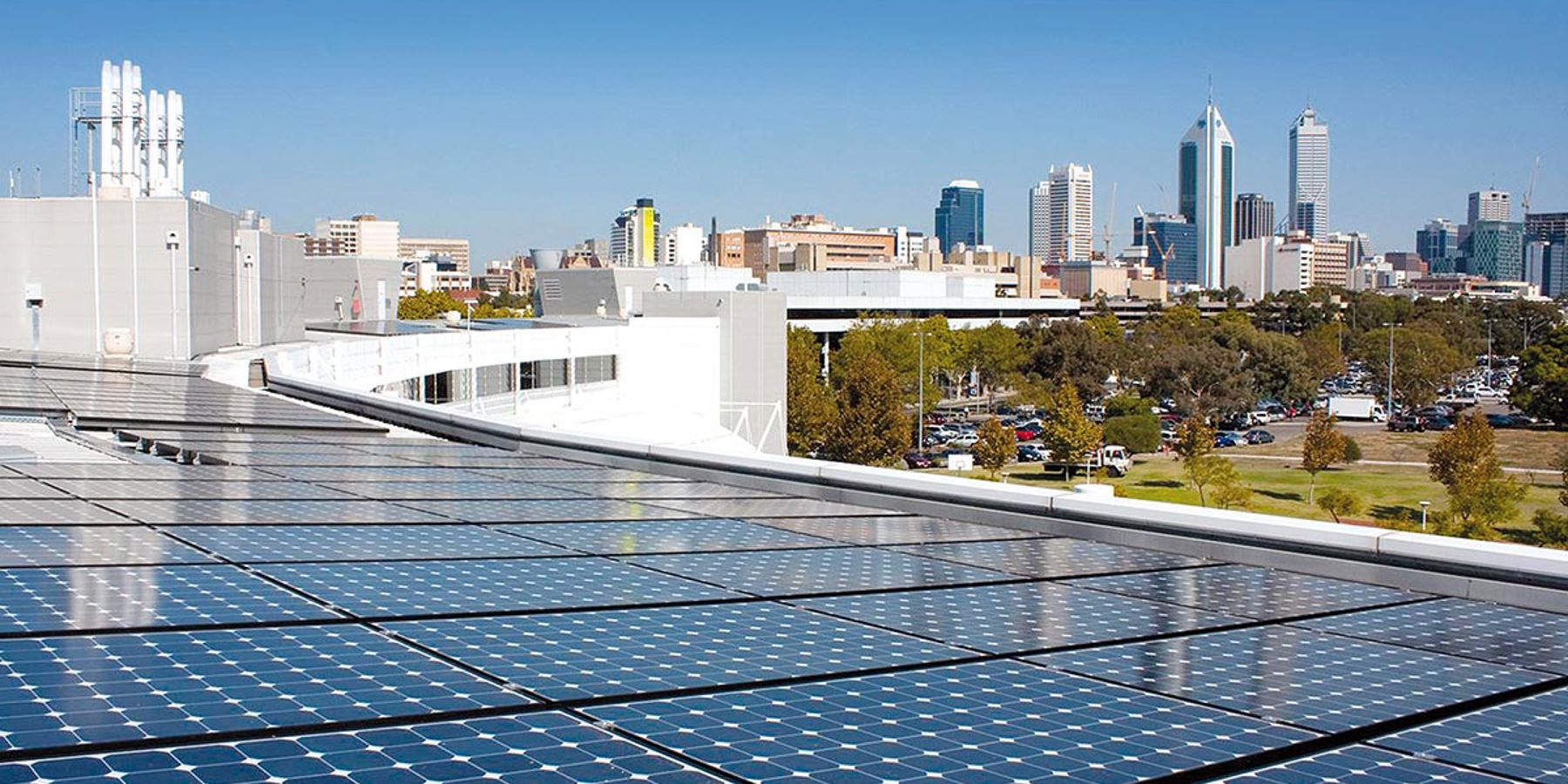Solar is not just happening on residential rooftops – businesses are getting in on it too.
Over the past few years, thousands of WA homeowners have added solar panels to their rooftops. Around 1 in 3 homes in WA has solar panels, the highest adoption rate in the country.
It’s not just residential customers, over the past five years, an increasing number of WA businesses are taking advantage of their commercial rooftop space and installing solar power to complement existing grid connection.
Powering up businesses
Western Power plays an important role in reviewing and connecting residential and commercial solar power systems within the grid, a key part of our shared path towards decarbonisation of the grid.
The number of approved solar installations onto commercial premises connected to the grid have soared from just two applications in 2013 to 144 in 2021.
The volume of PV requested has also increased.
“As panels have reduced in cost and improved in quality and efficiency, we’ve seen the shift to larger installations happen very quickly,” says Camille Fricker, Senior Access Consultant at Western Power.
“I started managing the Commercial Solar business almost five years ago when the average size for a commercial solar application averaged 100kVA, with no more than 20 having requirements for over 150kVA.
“Today, applications to install above 150kVA make up almost 50% of the Commercial Solar business annually, which equates to hundreds of solar panels across roofs of business premises.
Another fast growing request, says Fricker, is batteries to go with the solar.
“That’s the biggest trend; businesses installing batteries to make the most of their solar power.”
Business variety
Shopping centres have long been at the forefront of the commercial solar push, with large retail centres providing plenty of rooftop space for solar panels. Many were also early adopters of batteries, and other innovations such as adding solar panels to the tops of undercover public carparks.
Although retail trade (18%) is the biggest adopter of commercial solar, other industries are not far behind, including manufacturing (13%), wholesale trade (13%) and mining (11%). Another 11 industry categories are also represented, demonstrating the wide penetration of solar into the commercial space.
“These businesses are choosing to install solar because it benefits them,” says Fricker. “Just like home owners, they are getting on board with using renewable energy.
“And for those energy intensive industries, like mining or agriculture, we expect the amount of take-up to keep increasing.”
Fricker says with the drive for businesses to reduce their carbon emissions, she expects to see commercial operations become savvier around managing their energy.
“We’re already seeing this with the rise of businesses wanting batteries, as well as solar, to make better use of their power. I expect that we’ll see more businesses align their operational practices to make the most of the renewable energy they are generating, reducing their emissions and reducing their energy costs too,” she says.
“Our goal is to keep working with our business customers to ensure the grid can accommodate the demand while maintaining the safe, affordable and reliable delivery of energy across the network.”
